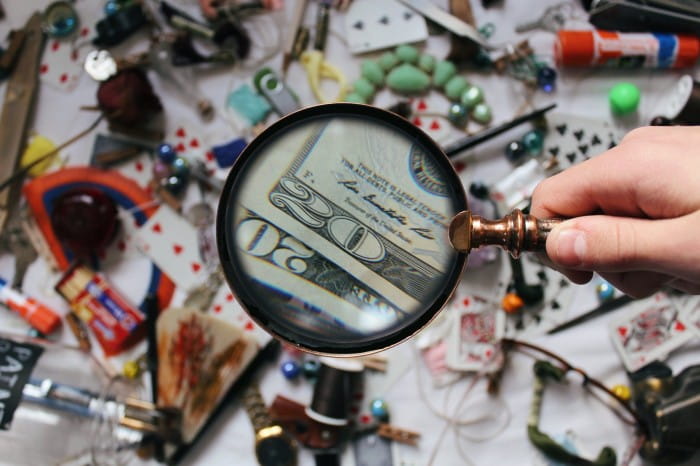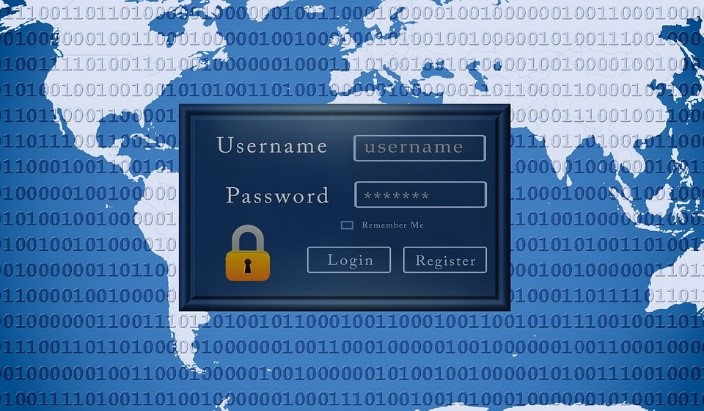
The digital age has made us reliant on the internet for everyday matters. All of our details are stored on clouds and backups. From your bank details to social security numbers to digital copies of passports and other identification documents. The potent, little smartphone carries not only your personal information but also your pictures.
Speaking of pictures, a lot of us are hyperactive on social networking sites. We cannot stop posting about anything and everything on the internet. From what we have for dinner to what we wear every day (read #OOTD) we post it all. Check-ins from every cafe and store and other generic details that we are not afraid to share are technically trackers.
You are a statistic in many databases. The food you consume, the clothes you wear, the type of cosmetics you use or the football team you support may seem minuscule but adding all of these tiny details together solves the entire puzzle of your existence.
Since social media is a lifeline for countless people of all ages. People do not take a second to think about the third parties that can use this information against you. Information is like toothpaste; once it’s out, nothing can put it back in. Your personal information, on the other hand, is a treasure trove. Marketers, businesses, agencies everyone that has the right means, can use the information to exploit you. Sharing your data is a personal choice. But before doing it, you should know where it could be used and what could be the consequences.
Here are 4 things to check before sharing your personal and financial information on the apps that you use.
Privacy policies

Almost all of the apps you download ask for a lot of permissions. They could ask to access your contacts, gallery, memory, microphone and camera and what not. Letting apps into your personal information leaves you vulnerable to third parties harvesting your data.
Taking Facebook as a prime example, let’s look at the things it can do. It knows your full name, your date of birth, has access to your contact number and contacts, and has your pictures. You regularly post about your daily life and leave hints about your interests here and there. All of these details can be used by businesses and governments to influence you. Since human beings are visual creatures, we are easily attracted to what we see. And that is exactly what these apps do.
With the Facebook-Cambridge Analytica scandal still rife, we should all be aware of what are the security measures an app has put up against third-party harvesters.
You should take 5 minutes and read the privacy policy before signing up or downloading an app on your phone. Since a cell phone carries countless details about you, especially the things, you wouldn’t want to be used against you in any circumstances.
Passwords privacy

Do not share your passwords. Not with your friends and neither with any app or website. There are little to no spam free apps on the market, and things can get quite messy if you don’t take the right course of action. People these days don’t just hack your accounts to blackmail you. Instead, they sell your information.
You become a collection of statistics based on your gender, location, and age. The use of Artificial Intelligence and its wonderful capabilities has already helped a lot of marketing campaigns. The things it could do with your information if someone put it to the task, is a scary situation. Do not let any website or app remember your password.
Because your password is the key to all sorts of data related to you. Make your passwords unique and easy to remember, so you do not forget them. Use these simple techniques of finding the right password.
Pop up pharming

Pop up adds are one of the biggest catch for pharming companies. While phishing is the act where a social media post, a text or an email asks for your personal information. Pharming does not operate on the bait.
This is a trap set by hackers to redirect you to the bogus web pages. This is where you enter your credit card number or password and fall prey to DNS cache poisoning.
The simplest way to avoid this is by checking the alphabets HTTPS written in the URL. That proves that the website you’re using is legitimate. Look for the padlock icon before sharing your information on any e-commerce forum. Since you cannot install firewalls on your phone, you need to be cautious when any of the apps on your phone redirect you pop up ads. Something can always go wrong if you’re not paying attention.
Impersonator galore

Did you know that your information can be used to impersonate you? It is a crime and an act that can potentially ruin someone’s life. This can not only leave you in debt but also bring arrest warrants on your door.
If someone gets your social security number or other identification documents through an app, you track your information with; someone is likely to impersonate you and frame you for a crime you have zero ideas about.
There are quite a lot of different ways someone can steal your identity, and there are countless ways to use this information against you. People can use your name and identification to open credit accounts and register a SIM card for criminal purposes. A false tax return can be filed with an incorrect social security number.
Your medical identity can be stolen to obtain benefits from your health insurance and the bills being sent under your name. A child or senior’s identity can be used to apply for government benefits without your knowledge. You can stop identity theft is by keeping a vigilant eye on your bank statements, insurance, and other such places.
No matter how hard you try, you can never be too sure of online security. Beware of anything that seems suspicious. Try to avoid sharing everything on social media. Be careful in disposing of your information. The more you care, the less likely are you to get harmed.
